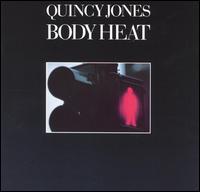| Body Heat | ||||
|---|---|---|---|---|
 | ||||
| Studio album by | ||||
| Released | May 1974 | |||
| Recorded | 1974 | |||
| Genre | ||||
| Length | 38:31 | |||
| Label | A&M | |||
| Producer | Quincy Jones, Ray Brown | |||
| Quincy Jones chronology | ||||
| ||||
| Review scores | |
|---|---|
| Source | Rating |
| AllMusic | |
| The Encyclopedia of Popular Music | |
| The Rolling Stone Jazz Record Guide | |
Body Heat is an album by Quincy Jones. [1]